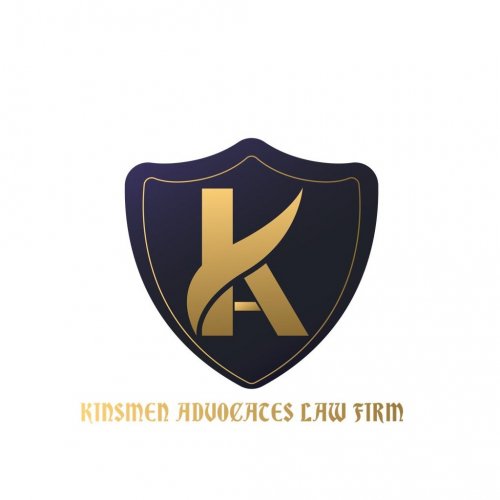Best Hiring & Firing Lawyers in Cameroon
Share your needs with us, get contacted by law firms.
Free. Takes 2 min.
Or refine your search by selecting a city:
List of the best lawyers in Cameroon
Legal guides written by CHI & Partners Law Firm:
- Ship Registration in Cameroon
About Hiring & Firing Law in Cameroon
In Cameroon, hiring and firing processes are regulated under the country's Labour Code. This sets out the rights and obligations of employers and employees as well as the procedural requirements for hiring and firing. Employer or employee rights and responsibilities encompass numerous areas such as job security, termination grounds, notice periods, and severance packages.
Why You May Need a Lawyer
A lawyer is beneficial in many scenarios relating to hiring and firing. For instance, if you are starting a business, a lawyer will help outline the legal guidelines for hiring employees and establishing employment contracts. Also, when firing becomes inevitable, a lawyer will guide through the legal requirements to prevent unlawful termination lawsuits. Lawyers also provide assistance to employees who believe they have been unjustly dismissed or those facing discrimination or harassment at the workplace.
Local Laws Overview
The laws governing hiring and termination in Cameroon are chiefly provided in the Labour Code. Some key aspects include:
Employment contracts: These may be of fixed duration or indefinite duration. For fixed duration contracts, renewals beyond two years convert the contract into an indefinite duration contract.
Termination: The labour law dictates that all employment contracts of unlimited duration may be terminated by giving notice or may be immediately terminated on payment of compensation in lieu of notice.
Unfair dismissal: If an employee believes they were unjustly dismissed, the Labour Code provides for recourse through the court system.
Frequently Asked Questions
1. Do employers in Cameroon need a reason to fire an employee?
While employers aren't expressly required to provide a reason for termination, doing so would be prudent. Unfair dismissal lawsuits can be triggered if the grounds for termination are deemed unjust.
2. Is there a mandatory notice period before firing?
Yes, the Labour Code mandates a notice period or financial compensation equivalent to the notice period in case of immediate termination.
3. Are there laws against discrimination in hiring practices?
Yes, the Cameroon constitution promotes equality and non-discrimination, thus these principles apply to hiring practices as well.
4. Are there laws governing severance payment?
Yes, Cameroon's Labour Code has clear provisions relating to severance pay in case of termination of employment.
5. Can a contract of indefinite duration be terminated without reason in Cameroon?
A contract of indefinite duration can be terminated with proper notice. However, doing so without a justifiable reason may expose the employer to a claim of unfair dismissal.
6. Can I sue my employer for wrongful termination in Cameroon?
Yes, in the event that you believe you've been wrongfully terminated, the Labour Code provides recourse through the legal system.
7. About how much compensation is offered when an employment contract is terminated?
This generally depends on the details of the employment contract and the circumstances of the termination. It's advisable to consult a lawyer for precise advice.
8. Are employment contracts necessary for hiring in Cameroon?
Yes, the Labour Code recommends employment contracts. They offer a clear understanding of job responsibilities, rights, and duties for both employer and employee.
9. How are hiring practices regulated in Cameroon?
Hiring practices are guided by the Labour Code, which encourages fairness, equality, and non-discrimination.
10. Can foreign companies operating in Cameroon terminate local employee contracts at will?
Foreign companies must follow local labour laws. Thus, they are not allowed to terminate contracts without adhering to the requisite legally outlined procedures.
Additional Resources
For additional resources, the Ministry of Labour and Social Security in Cameroon provides comprehensive information on their website about labour laws. Also, the National Employment Fund offers resources on hiring practices and the legal rights of employees. Non-Governmental Organizations, such as the Cameroon Employers Federation, can provide guidance and additional context about hiring and dismissal procedures in the country.
Next Steps
If you need legal assistance with hiring and firing in Cameroon, it would be advantageous to contact a local lawyer specializing in labour laws. A legal professional can provide sound advice based on the specifics of your case while ensuring that all actions are in line with Cameroon's laws. Additionally, it could be helpful to reach out to the aforementioned resources for more information and to better understand the law.
Lawzana helps you find the best lawyers and law firms in Cameroon through a curated and pre-screened list of qualified legal professionals. Our platform offers rankings and detailed profiles of attorneys and law firms, allowing you to compare based on practice areas, including Hiring & Firing, experience, and client feedback.
Each profile includes a description of the firm's areas of practice, client reviews, team members and partners, year of establishment, spoken languages, office locations, contact information, social media presence, and any published articles or resources. Most firms on our platform speak English and are experienced in both local and international legal matters.
Get a quote from top-rated law firms in Cameroon — quickly, securely, and without unnecessary hassle.
Disclaimer:
The information provided on this page is for general informational purposes only and does not constitute legal advice. While we strive to ensure the accuracy and relevance of the content, legal information may change over time, and interpretations of the law can vary. You should always consult with a qualified legal professional for advice specific to your situation.
We disclaim all liability for actions taken or not taken based on the content of this page. If you believe any information is incorrect or outdated, please contact us, and we will review and update it where appropriate.
Browse hiring & firing law firms by city in Cameroon
Refine your search by selecting a city.












